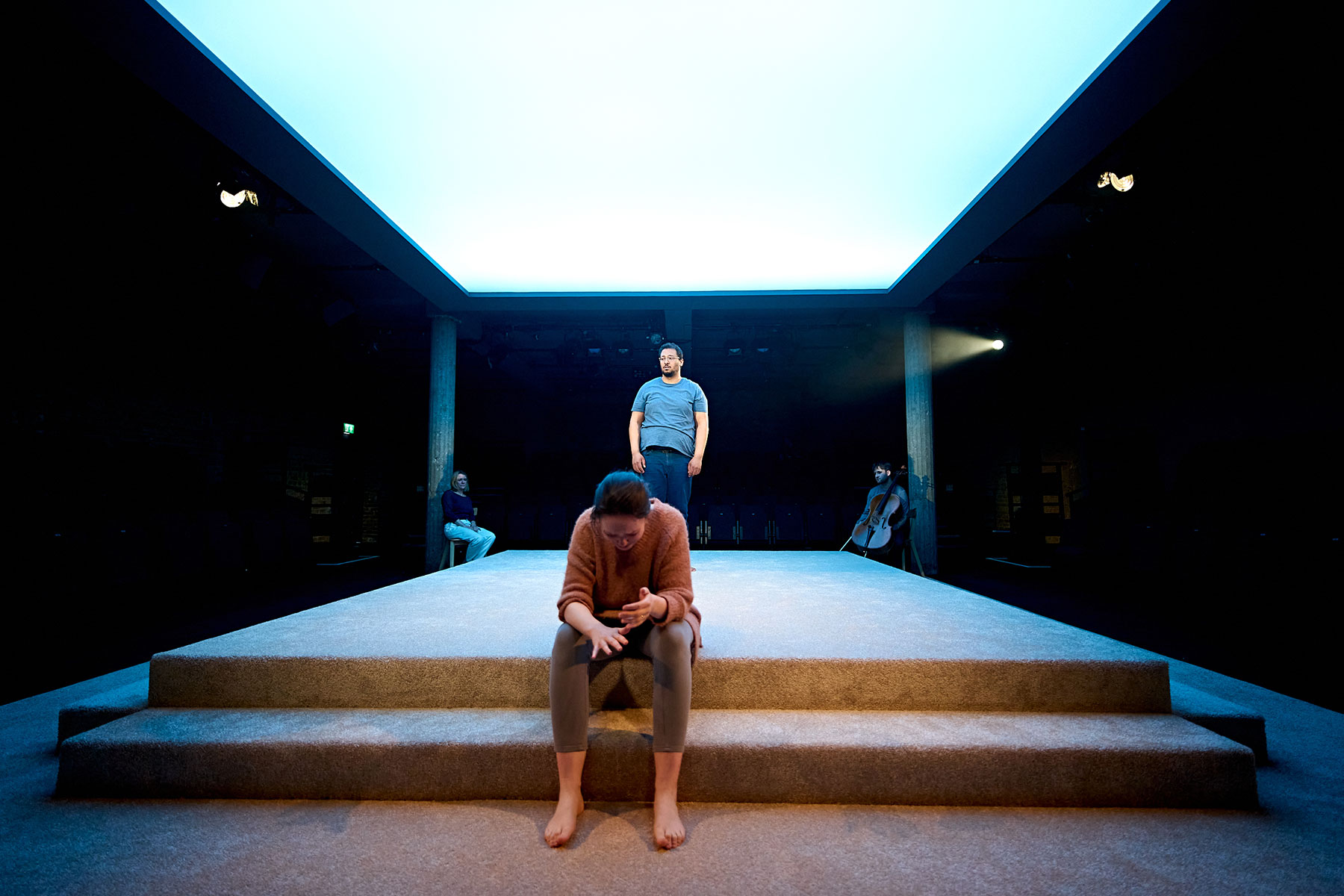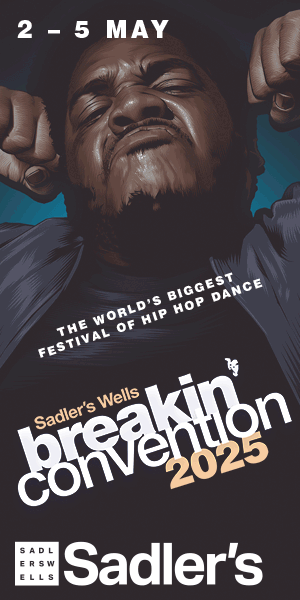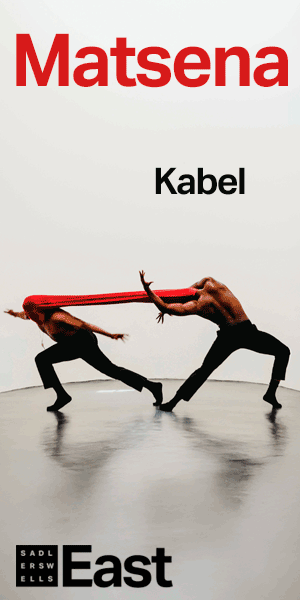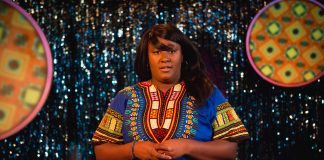
This is a play that deals with the seldom-discussed – and presumably quite common – phenomenon of postpartum depression… in males.
‘Postpartum depression causes extreme sadness and despair following the birth of a baby. It’s commonly associated with new mothers, but studies have identified postpartum depression in men. In fact, approximately 1 in 10 men develop what’s known as male postpartum depression or paternal postpartum depression (PPD)’.
It’s an intriguing thematic premise; one that’s rich in dramatic and narrative potential.
In many ways, this production satisfies in both areas; in others, not quite so much.
The set is simple: a carpeted, two-tiered square performance space.
In each corner is placed a small chair. On one of the chairs sits the sole musical accompanist – a cellist. On another sits a middle-aged woman.
A young man – Ash (Irfan Shamji) enters the middle of the space and starts, what initially looks like, a tai-chi movement, before clarifying – through body-language and dialogue with his female partner – that he is holding their new-born baby. Thereafter, we view a series of vignettes between Ash, his wife Anya (Eileen O’Higgins) and his mother Jane (Lucy Black).
These conversations are seen through the – increasingly fraught – perspective of Ash, who – it’s clear to see – is undergoing a form of mental unravelling in the wake of his son Lewis being born.
Furthermore, the scenes are only ever between either Ash and Anya, or Ash and Jane; the two females (daughter-in-law and mother-in-law) never actually meeting onstage. This creates a tension and a sense of polarisation that, at times, feels almost palpable. As it becomes clear that both mother and wife are having to deal with the pre-occupations and perceptions of an increasingly troubled psyche, the sense of unease is made all the more acute by knowing that both women are isolated from the other’s experience – just as Ash has self-isolated from them.
The performances by the two ladies are both excellent in their own way.
Black provides us with a world-weariness that implies far more than the narrative clarifies; constantly damping down her own unspoken trauma/ sadness, in order to re-direct her son to the hope necessary in fulfilling his new familial responsibilities. O’Higgins does well in communicating a fast-escalating sense of confusion, apprehension and trepidation, in response to her husband’s mental descent.
Composer and Cellist’s solo live Sound Design is evocative and multi-faceted; confidently describing Ash’s emotional disintegration, his floundering attempts at verbal coherence, as well as the more gentle aspects of child-rearing.
There are aspects of Aline David’s Movement to be commended. One highlight is a long-distance car journey, wherein the couple engage in an increasingly fractious argument; the movement fragmenting and recomposing raggedly, in conjunction with the jagged – and illogical – argument.
The source of Ash’s malaise – and, indeed, the reasons for his brittle relationship with his mother – are not fully explored or explained. This is probably a deliberate decision by Writer/ Director Bijan Sheibani; as if to suggest that male postpartum depression can be triggered in a multitude of ways.
I believe this reliance on ‘the universal’ would have worked better if the central portrayal of Ash hadn’t been so ponderous – so ‘mannered’. In a medium where ‘show-don’t tell’ is the general rule, strong actorly allusion is vital – especially, in the absence of full narrative context. In this way, I found the main protagonist’s characterisation – through whom all dialogue and perspective flows – to be physically, emotionally and dramatically limited. For example, when the (imaginary) baby’s head is accidentally bruised – due to a fatherly fit-of-pique – it feels more like a mild, teenage tantrum than an escalating violent domestic threat.
I also noticed that – as the ‘the stakes’ raise during the play’s final third – the audience continued to giggle at his unreasonable and unmoored behaviour; an indication of a slight creative disconnect.
I’m sure the actor has processed the full range of emotions (e.g. sadness, rage, frustration, shame, isolation, etc.); it’s just that, when they ‘land’, it’s seems to be largely through the sterling work of the two female actors. The denouement, also, feels a little too neat – almost unearned, bearing in mind the theme.
Having said that, the play has much to say about how boys who cannot reconcile their maternal relationship often turn into men who choose wives with whom to replay the conflict. And the production has much to commend it (i.e. theme, acting, set, lighting, sound, music…)
Perhaps some plays are presented to nudge us in certain directions – not to lead us all the way to any one destination. In that regard, this play is certainly worth the ride.
Need to know: The Cord plays at Bush Theatre until 25 May 2024






























